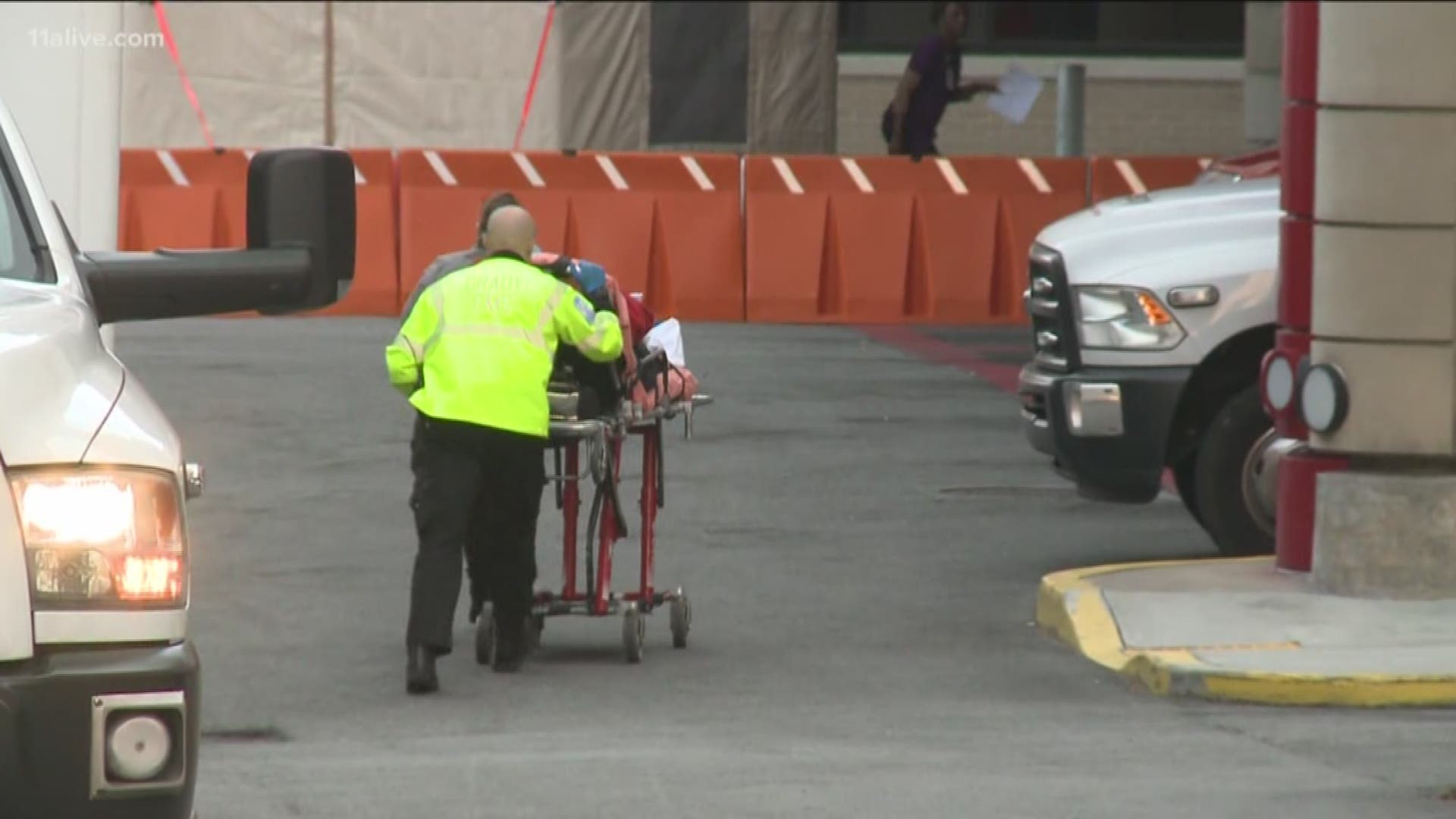A report from WebMD and Georgia Health News finds that most hospitals across the nation fail to follow standards of care when it comes to emergency medical treatment – and the state of Georgia was named a top offender.
Investigators found that the most common violations include failing to do thorough medical screening exams and transferring patients to the right place to get the care they need.
“When we looked at all the violations, Georgia had the sixth highest number,” said Brenda Goodman, senior news writer for WebMD. “[These] are instances where hospitals have violated a federal law called the Emergency Medical Treatment and Labor Act (EMTALA). That law guarantees care to anyone who comes into an emergency room seeking help, and it guarantees at least a certain level of care until it is determined that you’re not in a life-threatening situation.”
The 8-month investigation into hospital violations found that at least 4,300 violations occurred at 1,682 hospitals over 10 years from March 2008 to March 2018. Hospitals in the Southeast accounted for the most violations out of any region.
Florida was the worst state in the nation for these violations followed by Texas, Pennsylvania, New York, California and Georgia.
“We would like to see hospitals pay closer attention to the law, I think, and, you know, we saw too many cases of patients that were treated in a way they should have never been treated in an emergency room,” Goodman said.
Georgia Health News editor Andy Miller said a Gwinnett County teacher and nurse named Theresa Kung is a prime example.
Kung had a routine outpatient procedure in 2015 to look for the cause of post-menopausal bleeding. When she experienced severe pain over the weekend, her doctor’s office advised her to go to the nearest emergency room, according to the report.
She went to Piedmont Newton Hospital and an X-ray revealed that a puncture in her bowel was leaking into her abdomen. An emergency room doctor said she needed surgery – but she was forced to wait nearly 4 hours as the hospital made arrangements to transport her to the Gwinnett Medical Center in Lawrenceville.
“At Piedmont Newton Hospital, one doctor evaluated her and said we need to do surgery right away. The second doctor said no, we need to transfer her,” Miller said. “That transfer occurred, but she got sicker.”
Emergency doctors removed part of her colon and took out the surrounding infection, stating that the surgery went well. But Kung never woke up. She died the next day hooked up to a ventilator after going into the septic shock.
Federal investigators cited Piedmont Newton for failing to stabilize her and for transferring her to another hospital, even if it wasn’t safe, according to the report.
Researchers found that several local hospitals had EMTALA violations during the 10-year period – including Northside Hospital, Piedmont Hospital, Grady Memorial and more.
Goodman said the American College of Emergency Physicians considered EMTALA an unfunded mandate.
“They say that this is a problem, that they are asked to provide care, but then there is no compensation for that care," Goodman said. "So, it leaves hospitals with a hole in their budget."
She said it’s important for people in emergency situations to carefully evaluate where they seek care.
“The Center for Medicaid and Medicare Services has a hospital compare website where you can go on and see how they do on various quality measures,” Goodman said. “There is also a Leapfrog group that does its hospital ratings.”
11Alive reached out to several local hospitals mentioned in the investigation but did not receive a response.

